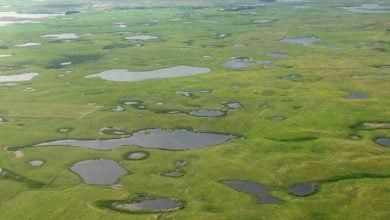On May 29 Canadian Prime Minister Justin Trudeau announced plans for the federal government to spend $4.5 billion to acquire the Trans Mountain pipeline expansion project from Texas-based oil corporation Kinder Morgan should the government fail to find a buyer for the massive project before July 22. In the process, he has pledged unequivocally that his government is committed to seeing the process through to completion- at a total cost of $7.4 billion, according to Kinder Morgan estimates.
The promise amounts to a bailout for the stalled project, which had been abandoned after meeting with dogged resistance by activists, foremost among them being the First Nations peoples on whose land the pipeline is built. These people are confronted with a very real history of contamination from the pipeline, including a particularly catastrophic spill in 1985 that released an estimated 10,000 barrels of oil into the ground near Edmonton, Alberta, as well as numerous smaller spills in later years. Activists in the province of British Columbia, where the pipeline reaches the sea, have been largely successful in pressuring the provincial government to oppose this project. It is this tension between the federal government’s support and the provincial government of British Columbia’s opposition to the project that caused Kinder Morgan to abandon the massive expansion project, according to a public statement.
This decision has been the culmination of a series of retreats from Trudeau’s 2015 campaign promise to give First Nations veto powers over any such project that would cross their lands. In spite of this promise, the Prime Minister has taken every opportunity to vigorously advance the interests of the capitalist class- within and without the borders of Canada, as this case indicates- over the same First Nations people he promised to empower against just this sort of abuse while he was on the campaign trail. The move also represents a breaking point for Trudeau, who has staked a significant amount of personal credibility on promises to prioritize environmental protection while also moving forward with “economic development” projects.
By moving forward with this pipeline expansion over the explicit objections of environmental activists and the First Nations, Trudeau has shown clearly that environmental concerns will take a backseat to the exploitation of natural resources, even at the expense of the safety of Indigenous people.
The Prime Minister has made the rationale for pushing this expansion forward exceedingly clear. In an interview with Bloomberg in May, Trudeau reiterated, “We are going to ensure that it gets built so that we can get our resources to new markets.”
According to Canada’s National Energy Board, the pipeline leads to several coastal oil refineries (including four in Washington State) as well as to terminals where crude oil is shipped to overseas markets in Asia and on the U.S. West coast. Satisfying the U.S. oil demand and the prospect of an overseas market to absorb excess production combine to form a strong incentive for the Canadian capitalist class to drive this project forward.
Trudeau has repeatedly emphasized that the government buyout does not signal an intention for the Canadian government to continue to own and operate the pipeline beyond the short time necessary to find another buyer. Despite these assurances, the fact remains that the Canadian federal government has stepped in to rescue the project and will be the owner and proprietor of a massive and environmentally disastrous oil pipeline for the foreseeable future.





